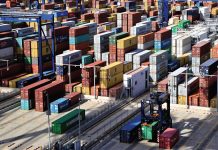ISLAMABAD: Export Processing Zones (EPZs) play a vital role in promoting trade activities as they help accelerate the pace of industrialisation in a country.
In Pakistan, EPZs could be made more productive if they are allowed to issue Statutory Regulatory Orders (SROs) for the export cargo instead of having the process done at the Karachi Export Processing Zone (KEPZ).
An SRO is the final stamp of goods verification, after which a cargo shipment is allowed for export.
Discussing with WealthPK the issue of the SRO regulation, Tajamul Hussain Sachal, the public relation officer of the Sialkot Chamber of Commerce and Industry (SCCI), said an EPZ should be allowed to operationalise SROs to make the exporters comfortable in shipping out their products. However, he said exporters had to take their shipping consignments to KEPZ for being issued an SRO. This was done at the great cost of paying more freight charges and sustaining other additional costs like direct and indirect labour, repackaging, warehouse charges, etc. “Exporters are troubled a lot as all SROs and standing orders are issued only in the name of KEPZ rather than through an EPZ. The government should resolve this issue on a priority to facilitate trade and business activities.”
Tajamul Sachal said the other important issue was the appointment of trained and experienced staff in EPZs, who could efficiently handle the inbound and outbound shipments. “The staff should have the proper knowledge and skills concerning export processing and customs laws.”
Talking to WealthPK, Shabnam Asif, an exporter of leather shoes from Sialkot, said SCCI recommendations were needed to be considered for speedy processing of export shipments. “Taking an export consignment to Karachi for further processing is cumbersome and worrying for exporters. It also increases the exporters’ expenses, and cargo handling becomes a problem in this way. During the last three to four months, most exporters missed the cargo ships because of the delay in goods processing at KEPZ due to the workload.”
Shabnam Asif said the government did not offer any single incentive like subsidy or rebate to the exporters in the event of losing the cargo ship due to a delay in processing at KEPZ.
She said the exporters were already facing rising production costs due to high electricity tariffs and increasing raw material costs. “Exporters are also troubled by long delays in repayments in case a shipment is returned or rejected. I strongly advocate that all EPZs must be allowed to resolve all import and export issues independently through one-window operation. It will not only decrease the workload on KEPZ but will also provide ease of doing business to both importers and exporters.”
Inp/javed






